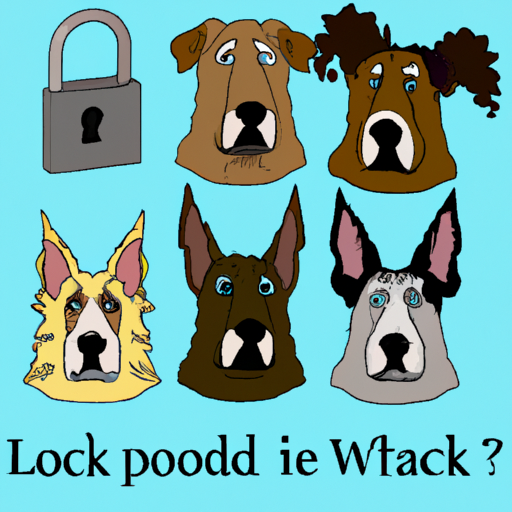As a caregiver, you’re always on the lookout for information that could help in better caring for your loved ones. In this case, your canine companion. Today, let’s delve into the topic of which dogs have a trait commonly referred to as ‘lockjaw’.
What is Lock Jaw?
Lock jaw, scientifically known as tetanus, is a bacterial infection that causes severe muscle stiffness. In dogs, this can create an impression of the jaw being ‘locked’. This condition is quite rare in dogs due to their natural immunity and the fact that tetanus is anaerobic, meaning it thrives in a place without oxygen; a dog’s body is not an ideal environment for it.
Dog Breeds Susceptible to Lock Jaw
While any dog can develop tetanus, certain breeds are more prone to it due to their lifestyle and genetic predisposition. Breeds that are typically more active and adventurous, hence more prone to injuries, are at a higher risk. These include:
- Working breeds such as Border Collies, German Shepherds, and Belgian Malinois.
- Hunting breeds like Beagles, Coonhounds, and Labrador Retrievers.
Common Symptoms of Lock Jaw
If your dog contracts tetanus, you might notice the following symptoms:
- Stiffness in the neck and jaw muscles, often referred to as “lockjaw”
- Difficulty swallowing
- Irritability or changes in behavior
- Muscle spasms or stiffness in other parts of the body
Treatment and Prevention of Lock Jaw
The most effective treatment for tetanus is early detection and immediate medical intervention. If you suspect your dog has tetanus, take them to the vet as soon as possible. The treatment usually involves antibiotics, wound cleaning, and sometimes, hospitalization for severe cases.
To prevent your dog from contracting tetanus:
- Keep their vaccines up to date
- Regularly clean and disinfect any wounds
- Avoid environments where the bacteria could be present, like dirty, stagnant water or areas with a lot of animal waste.
Lock Jaw in Dogs: A Comparative Study
Let’s take a closer look at how lockjaw prevalence varies among different dog breeds:
| Breed | Prevalence | Likely Cause |
|---|---|---|
| Working Breeds | High | Frequent exposure to outdoor elements and potential for injury |
| Hunting Breeds | Medium | Occasional exposure to outdoor elements and potential for injury |
| Toy Breeds | Low | Less exposure to outdoor elements and potential for injury |
FAQs
Here are some quick answers to frequently asked questions about lockjaw in dogs:
Q: Can lockjaw be fatal to my dog?
A: If left untreated, severe cases of lockjaw can indeed be fatal. However, with early detection and proper treatment, most dogs recover fully.
Q: Are certain dog breeds more prone to lockjaw?
A: Yes, working and hunting breeds are more prone due to their active lifestyle and exposure to outdoor elements.
Q: Can lockjaw in dogs be prevented?
A: While there’s no surefire way to prevent lockjaw, keeping your dog’s vaccines up to date and promptly treating any wounds can significantly reduce the risk.
Remember, as a caregiver, your awareness and quick action can go a long way in keeping your furry friends healthy and happy!



